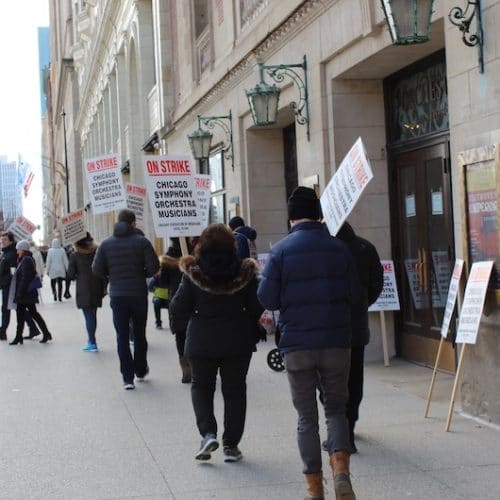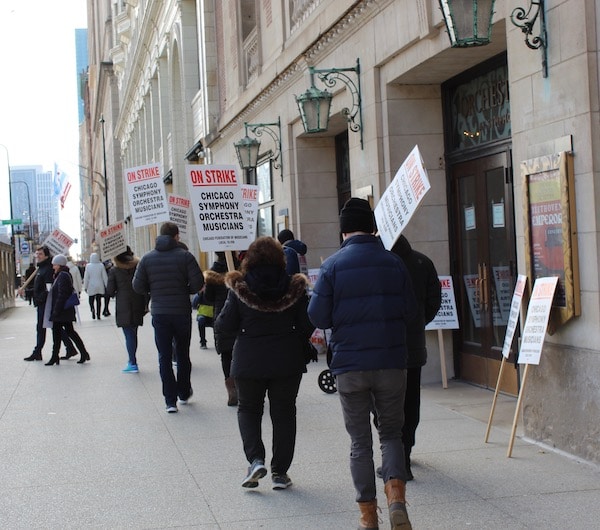Chicago latest: Both sides hurl bricks
mainThe musicians say:
April 23, 2019 – (Chicago, IL) – A week after the Chicago Symphony Association reneged on its promise to negotiate by flatly rejecting the CSO Musicians compromise proposal, the CSO Musicians called today on the Association to negotiate in order to resolve the strike in time to preserve scheduled performances with Maestro Muti. He returns to Chicago next week for his May residency.
‘The Musicians remain committed to negotiating a contract that ensures the future of the Orchestra and is respectful to the desires of subscribers and donors while offering compromises that address the Association’s needs,’ said Steve Lester, bassist and Chair of the CSO Musicians negotiation committee. Besides calling on the Association to negotiate in order to resolve the strike, the CSO Musicians illustrated that their compromise pension plan and 10% increase in salary over three years would not cost the Association any more money than their own proposal. Furthermore, it was pointed out that the same amount of money being offered by the Association is enough to fully fund the Musicians current defined benefits plan and provide all the necessary funds to go into a defined-contribution plan.
The Chicago Symphony Orchestra Association responds:
‘It is unfortunate that Chicago Federation of Musicians (CFM) did not contact the Chicago Symphony Orchestra Association (CSOA) to resume scheduling negotiating sessions prior to their publicity event this morning. There is an agreed upon scheduling process through either the federal mediator or the attorneys directly and the Association has not been contacted since our last negotiating session on April 16. Negotiations and meeting scheduling do not occur at a press conference. The union’s suggestion that the Association is unwilling to negotiate is false. The Association has been, and remains open to return to the negotiating table. This is where both parties can consider genuine proposals to respectfully reach consensus on a new contract. ‘







Comments